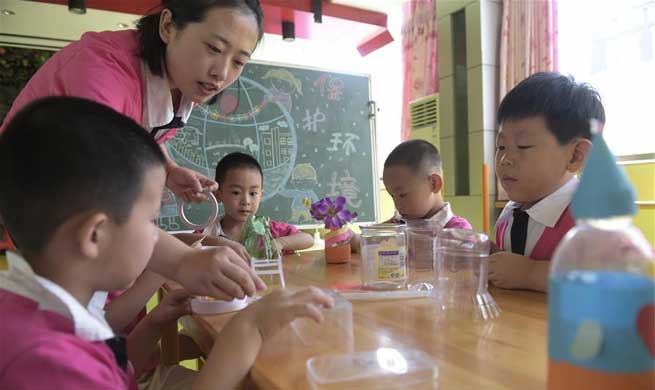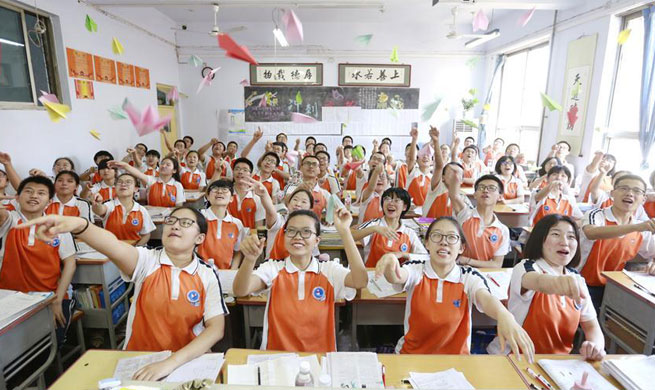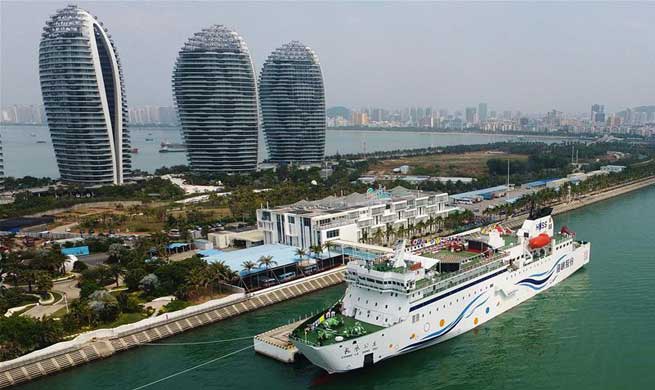GENEVA, June 5 (Xinhua) -- With the Chinese economy transitioning to a knowledge-based one, China's intellectual property (IP) system has seen tremendous development, World Intellectual Property Organization (WIPO) experts said.
This month marks the first decennial of the intellectual property strategy issued by the State Council, China's cabinet, in 2008 to improve the national capability to create, utilize, protect and administer IP.
WIPO Director-General Francis Gurry said China's progress in IP protection is reflected in the growing number of IP applications every year. In 2011, more patents were filed in China than anywhere else in the world, and since then, China's lead has widened.
In WIPO's March report, China moved into the second position as a source of international patent applications filed via WIPO in 2017, closing in on long-time leader the United States. Two Chinese technology companies, Huawei and ZTE, were the top international patent applicants that year.
Gurry also said trademark applications from China too have seen fast growth under the Madrid System through which WIPO registers international trademark applications.
"In 2017, China became its third largest user. Building brand reputation is important to gain a foothold in international markets. Consumers value cutting-edge technology, but they also value quality, reliability and brand image. Trademarks support companies in their efforts to gain consumers' trust," he said.
"The rapid development of China's IP system has also manifested itself in other ways, notably increasingly sophisticated IP management capabilities in companies and universities, and a modern legal infrastructure that supports the use of IP," he added.
A high-level WIPO delegation was in Shanghai in March to evaluate and exchange views on the implementation of the national IP strategy, officially known as the Outline of the National Intellectual Property Strategy, over the past decade.
Andrew Michael Ong, deputy director-general of the Intellectual Property Office of the Philippines and a member of the delegation, said China had consistently implemented the national policy and made extraordinary achievements, setting a perfect model for developing countries to come up with their own IP protection policies.
The delegates said China's IP protection system and efforts can serve as an example for ASEAN countries to formulate their IP strategies. WIPO would be recommending that ASEAN IP officials visit China for learning from the Chinese system and exchanging views.
By the end of 2017, the State Intellectual Property Office of China had registered over 1.3 million domestic invention patents on the mainland alone -- which means roughly 9.8 patents per 10,000 citizens.
"As more and more Chinese companies compete in global markets on the basis of cutting-edge technology, design appeal and brand reputation, they will surely need to rely more on IP protection in other countries. That means there will be a greater need to navigate the international IP system," Gurry said.
"Outward orientation in IP will likely be an important topic for many Chinese companies in the years to come," he added.

















